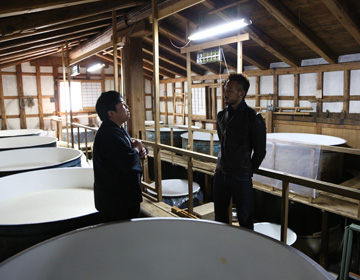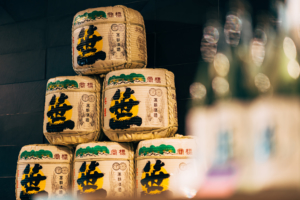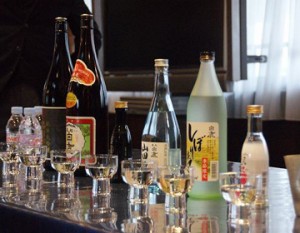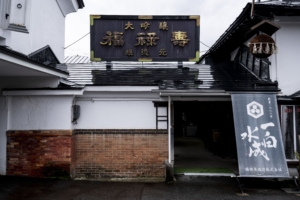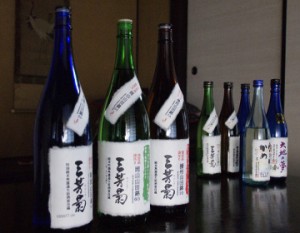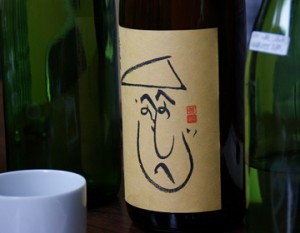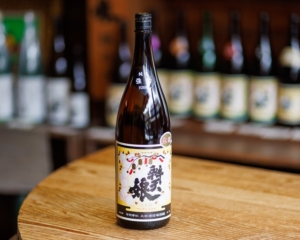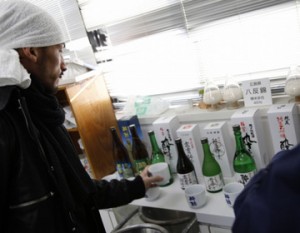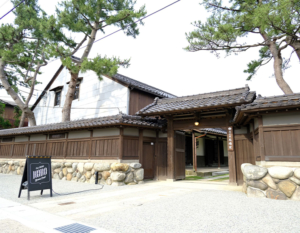“Sake” that is well known abroad
This is a ”sake” brewery located in Ninohe at the far north end of Iwate Prefecture, by the border with Aomori Prefecture. The ”sake” they make in this brewery with more than 100 years of history is called ”Nanbu Bijin”. (Nanbu Beauty). Once you see the name, you will never forget it, so even those who don’t drink ”sake” have most likely heard the name. As the name suggests, this is a beauty with a clear taste.
Nakata mentioned that he sees the bottles in Tokyo more often now. Kosuke Kuji, the 5th generation owner who guided us said, ”We sell half within the Prefecture and half outside the Prefecture.” We were surprised that 10% of the out of prefecture sales is exported overseas. They export to New York and London as well as to Japanese restaurants in Dubai. It certainly is a worldwide ”SAKE” from Japan
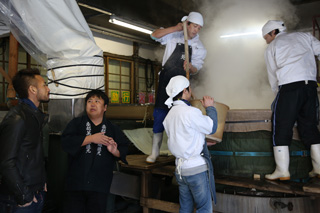
Using “sake” rice grown in Iwate
The main ingredients for Nanbu Bijin is a rice variety called ”Gin Otome”. This is an original variety from Iwate that is suited for making ”sake”. Iwate is the birthplace for Nanbu Toji (brew master group), however because of the cold climate, it is only recent that the rice crops became stabilized. For many years, they did not have an original rice that was suitable for making ”sake”. First in 1998, a rice variety called ”Gin Ginga” was born. And around the same time, also ”Gin Otome”. Kuji told us that he has been involved with this rice since the test production of Nanbu Bijin, so he is particularly attached.
Gin Ginga has a strong core while Gin Otome is a little softer. The characteristic is a slightly cleaner taste. The name Nanbu Bijin (Nanbu Beauty) certainly fits this rice.
Apart from Gin Otome, they also use a rice variety called ”Aizan” which has been protected by other brewery colleagues as a suitable rice for ”sake” to produce clean, soft tasting ”sake”.
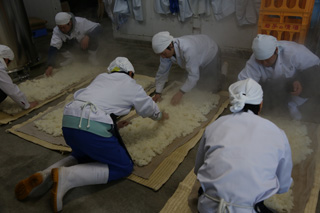
Searching for delicious food that is easy to understand
”What kind of ”sake” are aiming for?” asked Nakata. Kuji replied ””Sake” that is easy to understand.”
”When you drink it, is should be easy to understand. Fresh, clear definition, good aftertaste. I will be happy if I can make ”sake” that will make people smile and not have to think too hard after they drink it.”
With that in mind, he started research on not only ”sake” but also about distilled liquors as well. What made him do this was an opinion from a person ”who cannot drink ”sake””.
”This person was interested in Nanbu Bijin but did not like ”sake”. So I thought, how about ”umeshu” (plum liqueur). And that was the reason we started making ”umeshu”.” But some people criticized saying, what are we making ”umeshu” for? But he kept thinking what kind of ”umeshu” could be of the caliber of Nanbu Bijin, and ended up creating an unusual ”umeshu” by not using any sweetener. A pure taste was born with just using ”sake” and plums without adding any sugar. They also struggled with the development, but they eventually acquired a patent for the process.
”If you cannot drink ”sake”, then drink ”umeshu”. If you drink ”umeshu” then maybe you’ll also end up trying ”sake” as well.”
They recommend ”umeshu” or fruit liqueur for those who cannot drink much alcohol, and ”sake” for those who like alcohol. Kuji is proud that both of these are not gimmicks, but mainstream and produced locally. A brewery that aims to make people smile. The challenge for Nanbu Bijin will continue.




